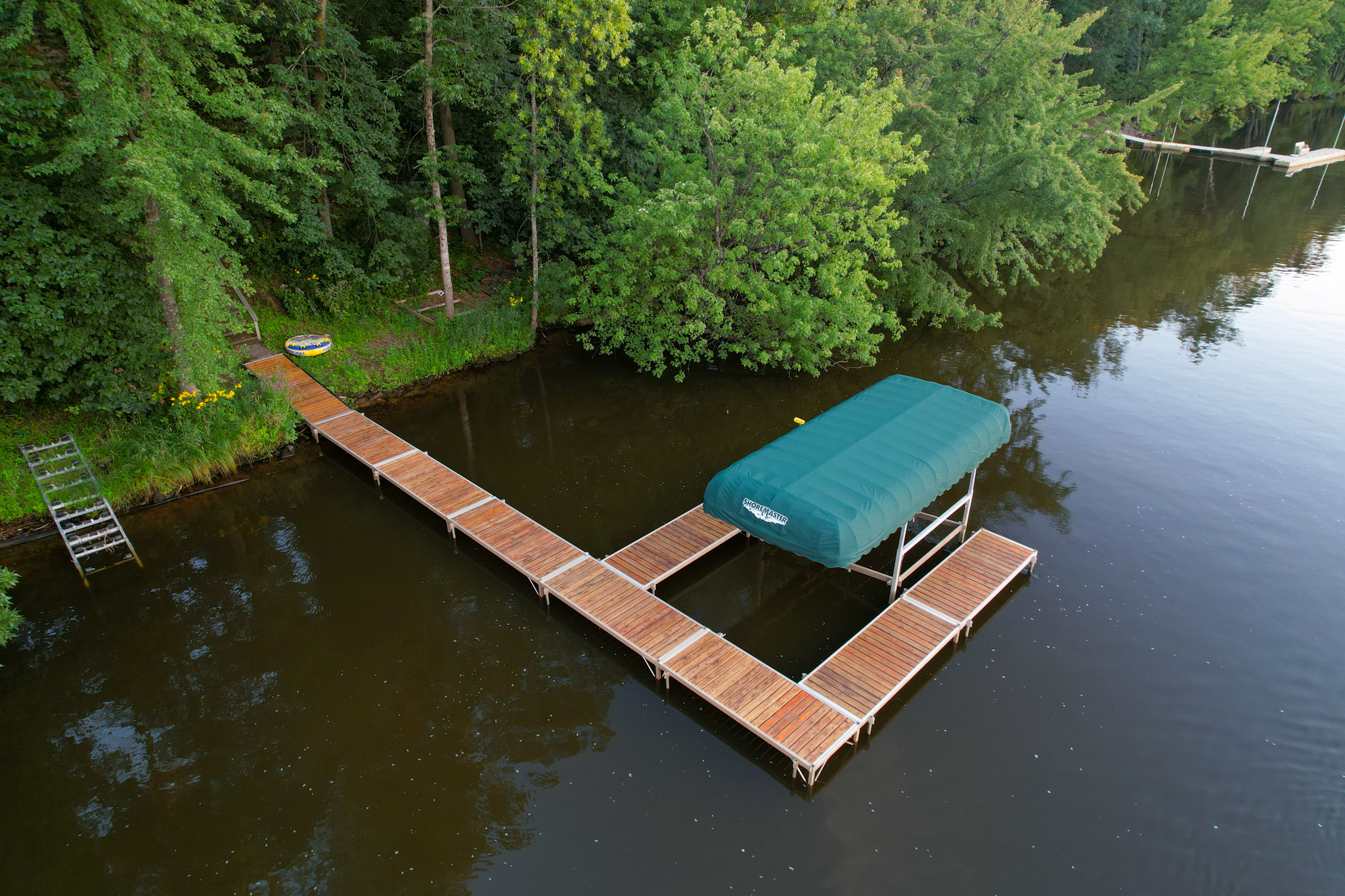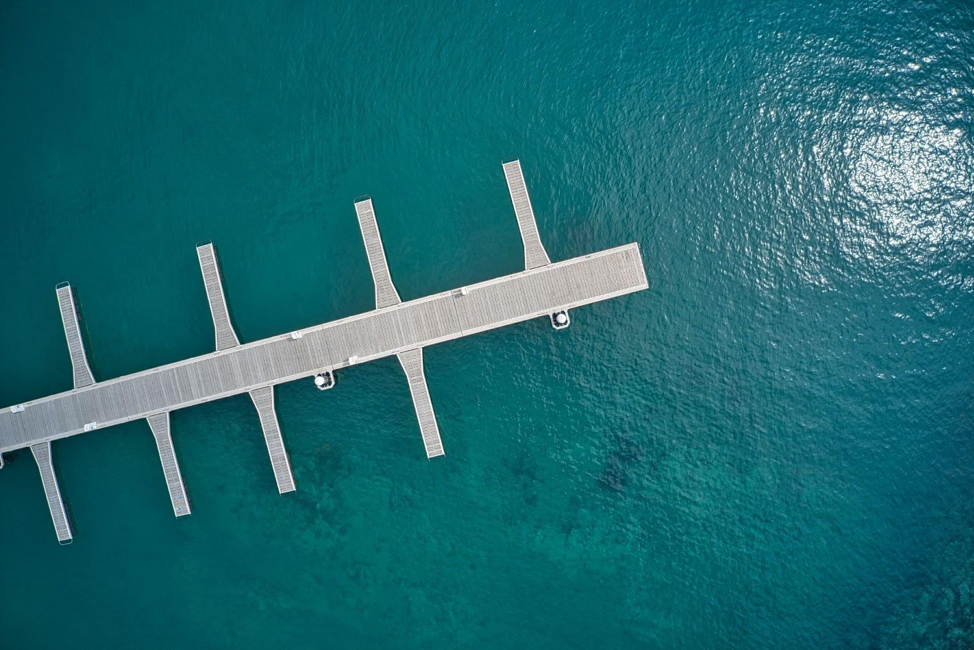How Floating Dock Company Competence Can Raise Your Waterfront Experience
How Floating Dock Company Competence Can Raise Your Waterfront Experience
Blog Article
Floating Docks: The Ideal Choice for Versatile Water Access
Floating docks present an engaging solution for a range of water accessibility needs, supplying adaptability that goes beyond typical mooring options. The modular nature of floating docks facilitates modification, providing to details needs.
Advantages of Floating Docks
Floating docks deal countless benefits that boost water gain access to for various applications. Their ability to fluctuate with changing water degrees makes them particularly advantageous in environments with varying trends or seasonal variations. This versatility ensures that vessels can quickly anchor without issue for the water's deepness, providing a reliable platform for recreational, commercial, and commercial usages.
Additionally, floating docks are commonly built from durable materials that withstand rust, making them ideal for long-term use in marine atmospheres. Their installation is commonly much less invasive than standard fixed docks, reducing the ecological impact and helping with quicker deployment (floating dock services). This versatility permits for much easier relocation or reconfiguration according to customer needs or environmental changes
Security is an additional essential advantage; floating docks can supply secure accessibility for people getting off or boarding from watercrafts and reduce the threat of accidents connected with unstable surfaces. Furthermore, they can be made to accommodate a selection of accessories, such as fenders and cleats, improving functionality. In general, floating docks represent a reliable solution for boosting water accessibility across diverse markets while advertising safety and security and ecological sustainability.

Kinds of Floating Docks
Different kinds of floating docks provide to different demands and environments, each made with certain features to optimize capability. One of the most usual kinds consist of modular docks, which include interlacing areas that permit for easy personalization and expansion. These docks are excellent for leisure usage, as they can be customized to fit various watercraft sizes and water problems.
One more preferred alternative is the fixed floating dock, which remains secured in position but drifts with altering water degrees. floating dock services. This kind is especially fit for areas with very little tidal changes, providing secure gain access to for angling or swimming. Furthermore, there are drive-on docks, which feature a sloped layout that permits watercrafts to quickly drive on and off, making them suitable for individual watercraft and smaller vessels
For business applications, sturdy floating docks are offered, constructed from strengthened materials to hold up against considerable loads and severe aquatic environments. Green floating docks make use of lasting materials and layouts to reduce ecological effect, frequently incorporating features like plant life to sustain local wildlife. Understanding the different kinds of floating docks ensures that users can choose the most appropriate solution for their certain requirements.
Installation Process Introduction
A successful installment of floating docks needs cautious planning and interest to detail to make sure ideal performance and security. The first step entails assessing the website problems, consisting of water depth, current, and potential challenges. This assessment informs the choice of the proper dock products and style tailored to the specific atmosphere.
Following, getting needed licenses is essential, as many territories have policies relating to building on water bodies. The setup can proceed once authorizations are secured. Begin by preparing the structure, which find out here now may entail anchoring systems or pilings tailored to the dock kind and regional problems.
Adhering to the structure setup, construct the dock sections according to maker requirements. Ensure that all parts are firmly fastened and straightened to stand up to environmental stress and anxieties. Setting the dock in the designated area, guaranteeing it is degree i was reading this and secure.

Maintenance Tips and Finest Practices
After the installment procedure is total, ongoing maintenance plays an important function in making certain the durability and functionality of floating docks. Routine evaluations ought to be performed to determine any type of indicators of degeneration, damage, or wear - floating dock company. Check for any type of loosened fittings, cracks, or separation in the dock areas, as these can jeopardize structural honesty
Cleaning the dock is necessary to remove particles, algae, and other accumulation that can influence its appearance and security. Use a gentle pressure clean occasionally to keep sanitation without creating damage to the surface. In addition, applying a protective sealant every few years can aid boost durability and resist environmental wear.
Focus on the mooring lines and supports, guaranteeing they are complimentary and secure from deterioration. Change any kind of degraded components immediately to prevent risks. Seasonal changes might additionally be essential; throughout severe climate condition, rearranging or enhancing the dock can avoid damage.
Applications for Floating Docks
Floating docks offer a wide variety of applications, providing to both leisure and industrial needs. In recreational settings, they offer seamless accessibility to rivers for tasks such as boating, fishing, and swimming. Their adjustable nature enables for setup in varying water levels, making certain secure and secure access despite tidal fluctuations.
Readily, floating docks are indispensable for marinas and waterfront companies. They assist in the docking of vessels, making it possible for reliable filling and dumping of products. Their modular style enables easy growth or reconfiguration to fit transforming organization needs, making them excellent for watercraft leasings, excursion operations, or fishing charters.
In addition, floating docks are utilized in ecological applications such as marine research study and habitat restoration. They can work as systems for scientific studies, keeping an eye on water quality, or conducting wild animals surveys without disturbing delicate ecological communities.
In commercial contexts, floating docks are used in building projects, providing accessibility to hard-to-reach areas for equipment and personnel. Their versatility, resilience, and minimal effect on the Recommended Site atmosphere make them an optimal selection for a variety of applications, enhancing both functionality and access in numerous water-based atmospheres.
Final Thought
Finally, floating docks represent an optimum service for diverse water accessibility requires, owing to their adaptability, durability, and modular layout. These structures facilitate risk-free mooring for different applications while lessening ecological influence throughout setup. The decreased upkeep demands even more enhance their practicality. Floating docks serve as a useful property for entertainment, commercial, and ecological tasks, ensuring reputable accessibility to rivers and promoting sustainable practices in water environments.
Floating docks existing an engaging option for a selection of water accessibility requires, using convenience that goes beyond standard mooring choices.Floating docks offer countless benefits that boost water accessibility for different applications. Generally, floating docks stand for a reliable option for enhancing water gain access to throughout diverse sectors while promoting safety and security and ecological sustainability.
An additional prominent choice is the stationary floating dock, which remains anchored in area but drifts with transforming water degrees.In final thought, floating docks represent an optimum option for varied water gain access to needs, owing to their adaptability, resilience, and modular design.
Report this page